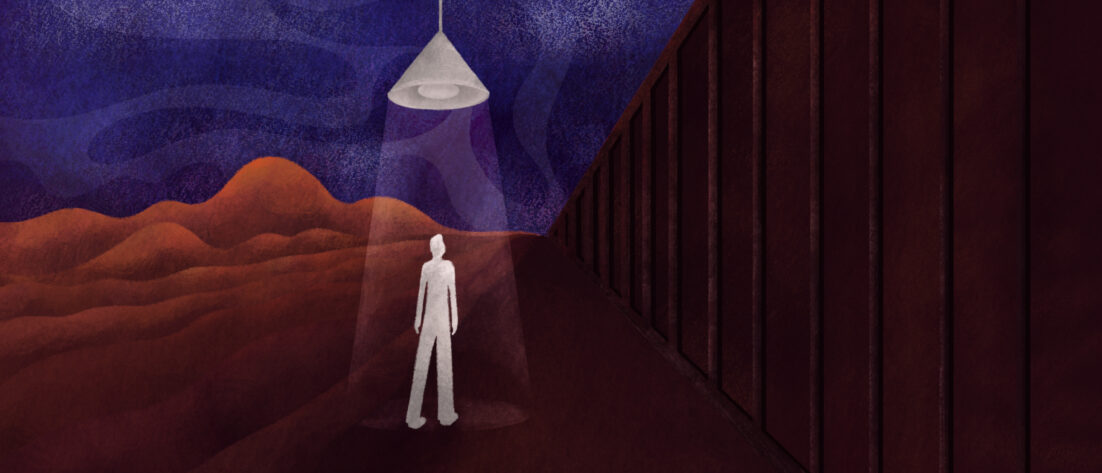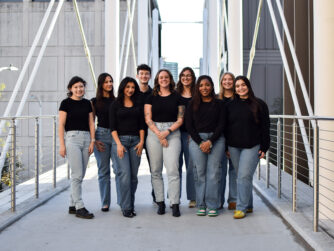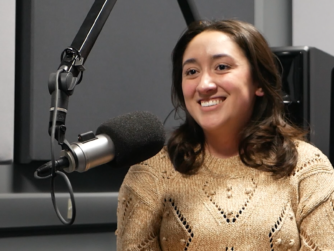I grew up in Smithville, Texas, a small town about 45 miles southwest of Austin. When I was a kid, in the mid-1990s, the population was around 4,000 people. Smithville is one of those towns where everyone knows everyone, for better or for worse.
I was just a kid, but in 1996, I remember hearing Rodney Reed’s name in the news. He was a Black man who’d been accused of murdering a white woman, and people said he’d been having an affair with her. It was really shocking. There weren’t, and still aren’t, many murders in that area.
I followed Reed’s story over the decades, especially when I started to work in local news in Austin. I helped cover Rodney’s story through appeal after appeal as he and his family argued his innocence.
When I started this job at The Drag in January 2021, Reed’s case and the murder of Stacey Stites was on my list of stories I wanted to cover in an audio format. It hadn’t really been done, and I knew there was a lot to be told.
I hired Aisling Ayers to start looking into Reed’s case. If you’re not a journalist, you may not realize how challenging it is to report on stories as sensitive as this one. As we set out on this reporting, we received good luck wishes from fellow journalists who acknowledged the challenges surrounding this story. Their well-wishes felt more like warnings, and it turned out, they were right. We hit walls at every turn. We struggled to find people willing to be interviewed. Several of the people we contacted, who knew a lot about the case, were hesitant to revisit the pain they experienced 25 years ago, or they were afraid to share their stories with journalists.
One person who did agree to talk to us was Anthony Graves, a Black man who was convicted of murdering five people in Somerville, Texas. Graves spent more than a decade on death row before he was exonerated and freed, and in the years since, he’s advocated for other people he thinks are innocent – including Reed. Aisling and I went to Houston to interview him in the fall of 2022. The conversation ended up being more about the conditions on death row than about Reed’s story. On the drive back to Austin, Aisling and I couldn’t stop talking about the interview. Graves was so raw and open with us — two young white women who couldn’t even fathom what he’d gone through.
That interview marked a turning point in our story. We began to stop thinking of this as Reed’s story alone, but a story about the systems that affect the lives of people living in Texas. The justice system. Death row. Judges and juries. Police officers and investigators. Systemic racism and prejudice, especially in rural areas.
As we continued having difficulty trying to report on Reed’s case, I began to think bigger. What if The Drag started a new series, where each episode (or mini-series of episodes) told a different story about the systems that oppress and enhance the lives of the more than 29 million people living in Texas? What if we could highlight this state — my home state — and show its soft underbelly, its warts, its victories, its failures, its pride…its truth?
That was where “Forsaken” was born. Over the coming months, the students and I brainstormed. What stories could we tell? We had another student, Marissa Greene, who’d been trying to share the story of Amber Hagerman, the little girl whose kidnapping and death led to the Amber Alert system, which saved the lives of hundreds of kids. Marissa hit many of the same walls reporting on Hagerman’s story that Aisling hit reporting on Reed’s. It made sense that the work Marissa did could also be a part of this new series.
We had other stories cross our path that could work, like “Missing White Black,” a two-part series telling the stories of four Black women who went missing in East Austin in the 1970s. Cristela Jones, a master’s student at the time, had begun this work in another class, then brought it to me.
Suddenly we had a series. We had stories to share. And more came out of those ideas: What’s it like to grow up queer in conservative Texas towns? What’s the current state of sex education in Texas? What are some untold Texas stories that led to the state being what it is today?
As part of our creative process, we listened to Texas country artists for inspiration. One day, in my office, we were listening to Billy Joe Shaver. A tribute album honoring Shaver had just been released, and I thought we could find some inspiration in his songs — and we did. In “Live Forever,” Shaver sings:
You fathers and you mothers / Be good to one another / Please try to raise your children right / Don’t let the darkness take ’em/ Don’t make ’em feel forsaken / Just lead ’em safely to the light
It felt obvious. This was exactly how we felt about this series. So many of us working on this series are native Texans, and we have complicated feelings about the policies and systems in our home state. Early on in our brainstorming process, I said, “When you love something, you want it to be better.” And that’s how I feel about living here. Texans have a lot of pride, and I do too. There aren’t many things better than watching the sky during a Texas sunset, drinking a margarita on a patio on a spring day, driving a golf cart down a Port Aransas beach, wearing burnt orange on an October Saturday, floating a way-too-cold river. It’s what makes this place unique, and it’s why we can tolerate some of the less-than-ideal things about living here.
“Forsaken” is about Texas. The good and the bad. New episodes drop every other Tuesday. All of us at The Drag really hope you listen and feel something when you hear these stories. And if you have an idea for something we should cover on “Forsaken,” drop us a line: [email protected].









